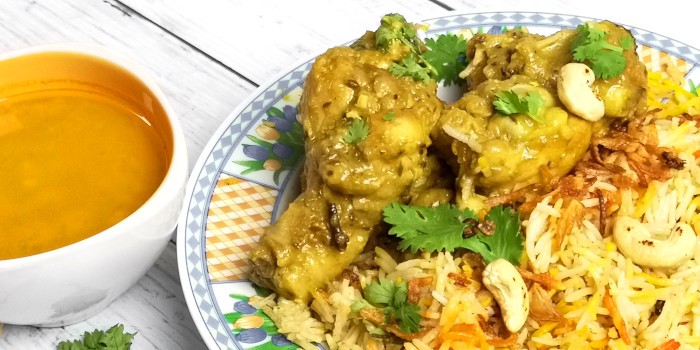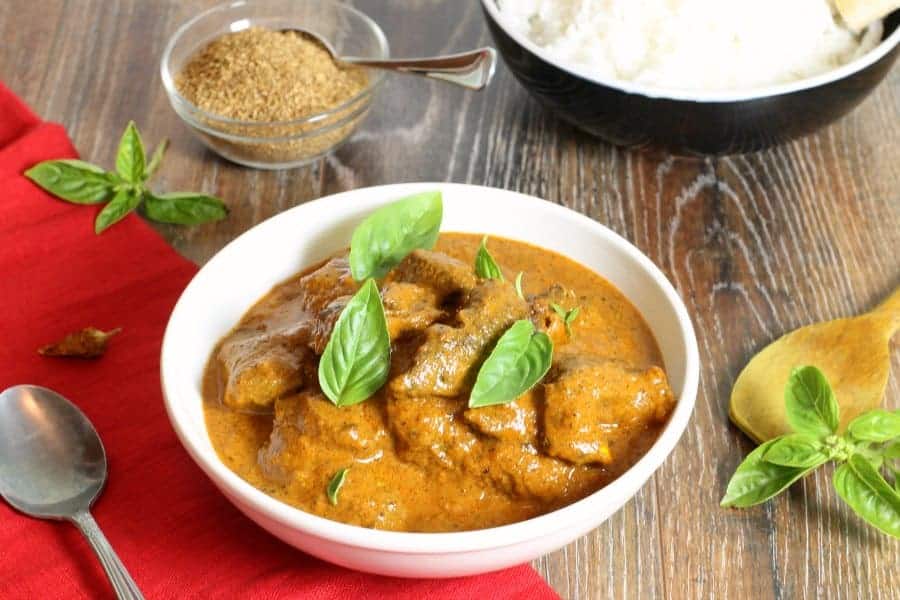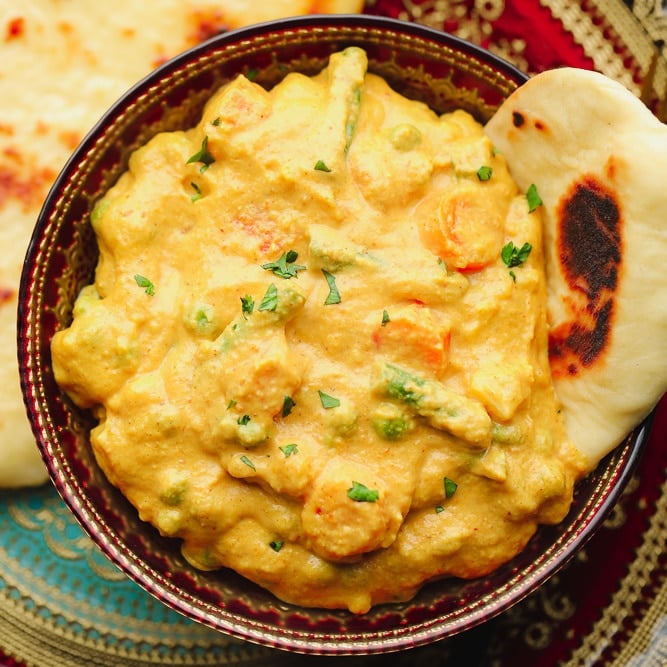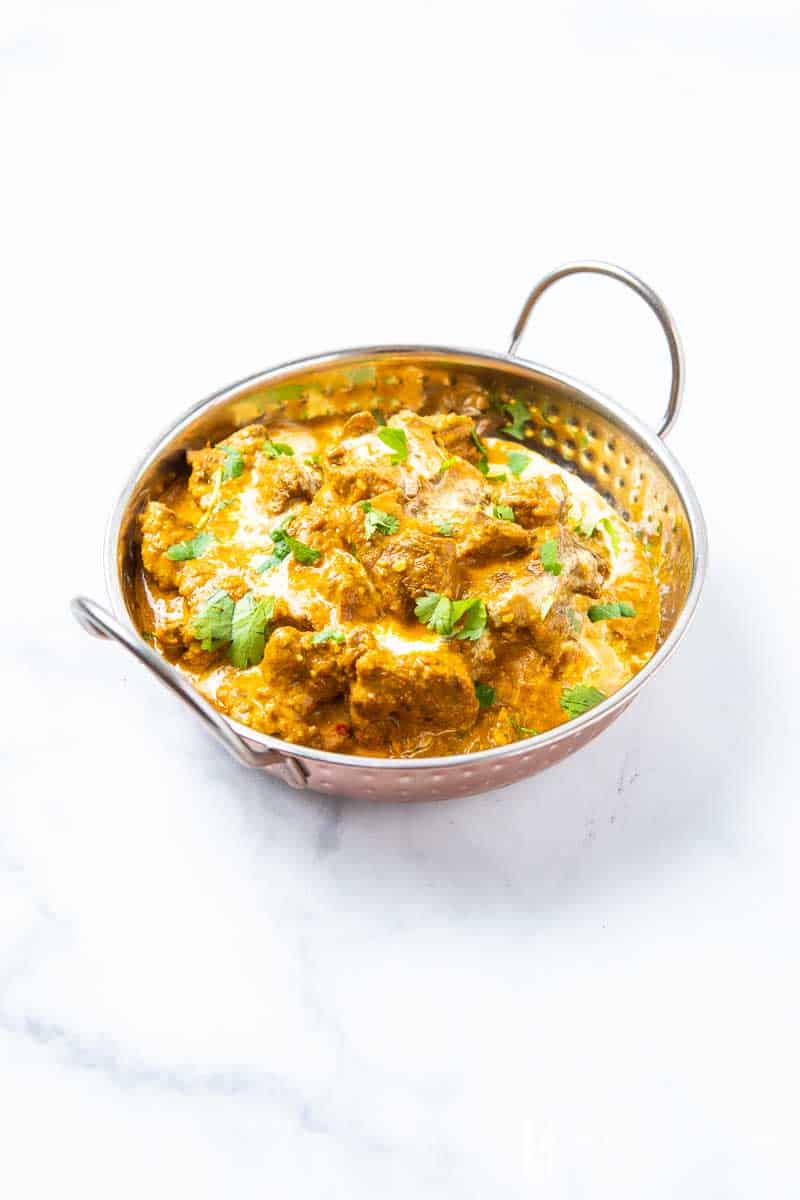Korma
qorma, क़ोरमा, কোরমা
Korma or qorma is a dish with its origin in the Indian subcontinent, consisting of meat or vegetables braised with yogurt, water or stock, and spices to produce a thick sauce or gravy. The English name is an anglicisation of the Hindi-Urdu qormā (क़ोरमा, قورمہ), meaning "braise". It refers to the cooking technique used in the dish. All these words, and the names of dishes such as the Iranian ghormeh (Persian: قورمه), Turkish Kavurma and the Azerbaijani qovurma or kavarma, are ultimately derived from a Turkic word qawirma, meaning "[a] fried thing". The Indian korma is, however, possibly unrelated in a culinary sense to the modern Turkish kavurma or to some other dishes using the same root word, as they use widely varying techniques and ingredients. Korma has its roots in the Mughlai cuisine of the Indian subcontinent. A characteristic Mughal dish, it can be traced back to the 16th century and to the Mughal expansion into South Asia. Kormas were often prepared in the Mughal court kitchens, such as the famous white korma, perhaps garnished with vark, was said to have been served to Shah Jahan and his guests at the inauguration of the Taj Mahal.
Source: Wikipedia
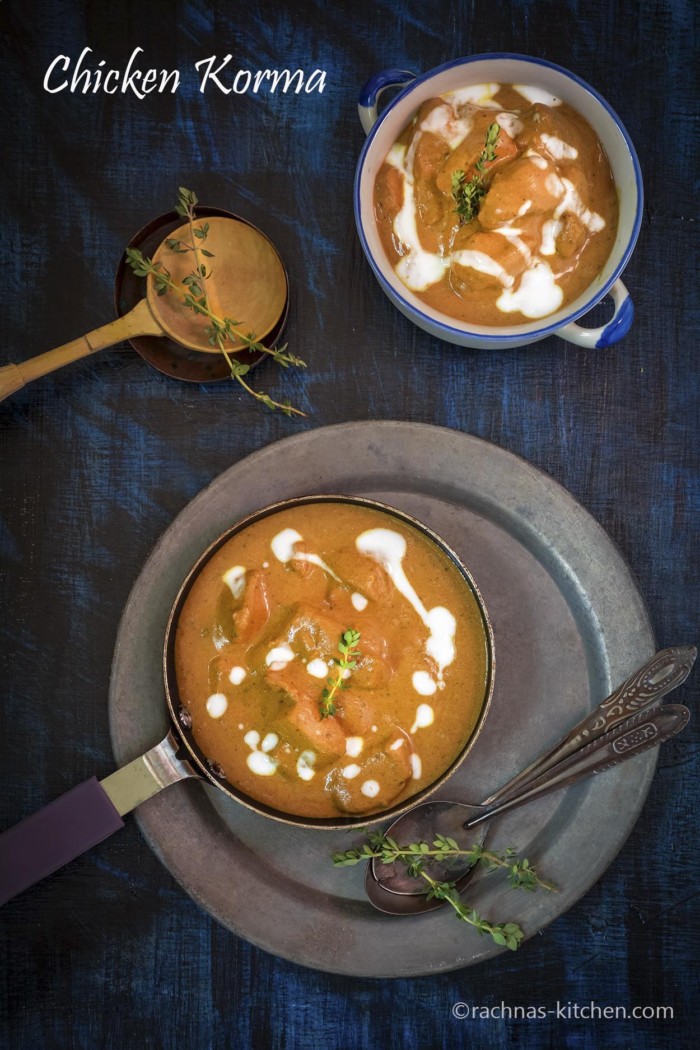
:max_bytes(150000):strip_icc()/60598-vegetariankorma-passano-alr0221-7499-2000-d6284318635b47d7872a2c9496db6568.jpg)

:max_bytes(150000):strip_icc()/38809_Chicken-Korma_MFS-pes_03032110-3-1-2000-b7db2d5a2a514077b252f28e06deee82.jpg)
